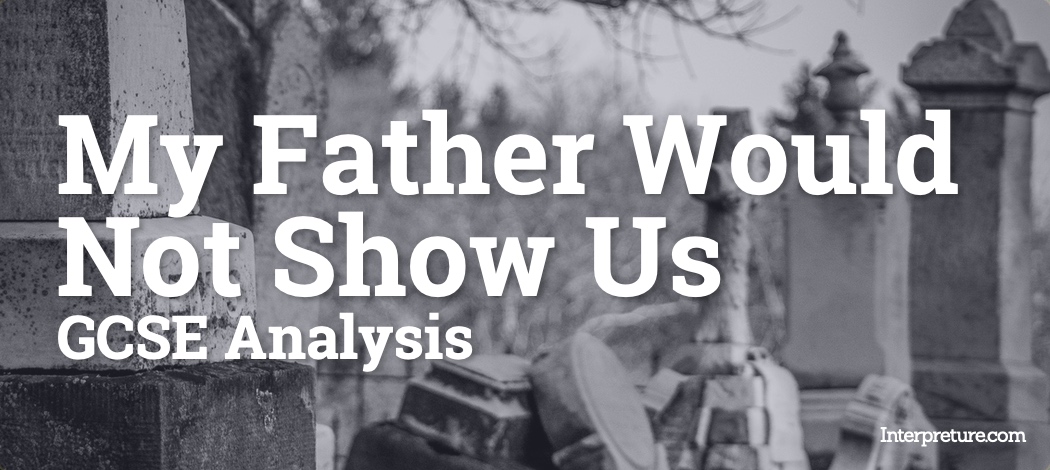‘One Flesh’ is a poem by Elizabeth Jennings, in which an individual’s intrigue towards the passionless marriage of their parents is explored with a sad and nostalgic tone. The narrator observes the physical and emotional separation or their parents. Jennings was an English poet born in 1926, who developed a love for poetry through her job as a librarian at the Oxford City Library. She was a devout Roman Catholic, with ‘One Flesh’ being an example of how religious themes have been included in her work. However, she stressed that her work should not be read as autobiographical.
This poem could be included in the AQA English Literature exam as part of the ‘Love Through the Ages’ Post-1900 Anthology. It is therefore important to study, understand and revise this poem. Click here to see notes and analysis for all poems in the ‘Love Through the Ages’ Anthology.
‘One Flesh’ is also included in the Relationships Anthology – part of the poetry specification for Edexcel’s GCSE English Literature course. Whilst this analysis is set in the context of the A Level course, it is also relevant to the GCSE specification, and students revising for the GCSE examination.

Interpreture gives ‘One Flesh’ a difficulty rating of 2, suggesting that it is relatively straightforward. The meaning and overall themes of this poem are quite clear even from an initial reading, which makes the poem more accessible to a wider variety of students. Some language and structure techniques are more challenging than others, but there are also a range of simple techniques to analyse such as similes, connotations and a regular structure.
‘One Flesh’
The title ‘One Flesh’ is a point of interest for this poem because of the various ideas it can evoke for the reader. For those that have a greater understanding of religion, or of Jennings’ faith, links could be established to the idea of ‘one flesh’ in marriage (refer to the context section for further information).
For readers that are less aware of the religious links of this title, it will still likely be effective at communicating the overall idea of relationships due to the poem being relatively easy to understand. However, the use of ‘flesh’ could seem more out of place to these readers, who would perhaps wonder why the individuals have seemingly lost a sense of their selves by being turned into an anatomical description.

‘One Flesh’ Context
The term used in the title ‘One Flesh’ originates from the account in the Book of Genesis of the creation of Eve in the Garden of Eden, in which Eve was created from one of Adam’s ribs. Adam recognised this as showing that the two individuals were in fact ‘one flesh’ and could not be divided. This concept then extends to that of marriage, in which two individuals become one entity. For Jennings, a Roman Catholic, this teaching would have been an important part of her faith, particularly in the topic of marriage and relationships, so it is unsurprising for it to be referenced in a poem on this subject. Some readers could interpret the poem to therefore realise that this concept may lack the ability to be true to all relationships.
Structure and Language
‘One Flesh’ has a consistent structure, being made up of three stanzas, which each have six lines. This consistency is important because it can be interpreted as representing the ever-continuing nature of the distance between the subjects of the poem; and just as the poem is ‘trapped’ in this repetitive cycle, so too are the man and the woman. This could help a reader to feel sympathy, providing that they recognise this subtle device. There is also a slight visual change as the poem continues, with the lines in the final stanza longer than those in the first, with the last line the longest of all. This helps to guide the reader towards this conclusion, emphasising the final line and the ideas which it communicates, arguably breaking slightly from the repetitive six line structure, and potentially providing some hope of change in the future.
Jennings also uses present tense throughout the poem, with examples including “lying” “keeping” and “dreaming” just in the first stanza. This helps to feed into the idea of the continual unhappiness and distance between the man and woman, and strongly supports how the line “for which their whole lives were preparation” indicates that this will be both the present and future state of their relationship. As with the repetitive structure, this overall idea of their relationship being stuck in this unhappy state is likely to cause the reader to feel tremendous sympathy – even helplessness – therefore emphasising with the arguably helpless situation the couple find themselves in.
Similes are a frequently used poetic device in ‘One Flesh’ and help to provide various forms of imagery that support a reader’s understanding of the poem. For example, descriptions such as “she like a girl dreaming” or “tossed up like flotsam” provide vivid imagery that help the reader relate these thoughts and feelings to the situation. It is notable that similes are used rather than metaphors, which could lead some readers to thinking that the situation is perhaps not as bad as it seems. Alternatively, a reader may connect more effectively as a result of comparisons rather than definite descriptions, able to consider their own similar thoughts and experiences.
Important Lines
“Her eyes fixed on the shadows overhead.”
Often referred to as ‘windows to the soul,’ eyes are a significant part of the body to describe due to how personal and unique they are. As such, the reader could interpret this line as confirming the emotions felt by the woman are true and accurate. Connotations related to “shadows” include darkness and negativity, clearly reflecting the negative feelings and emotions, and indicating that there is potentially something worse still to come, creating a feeling of apprehension. The use of “overhead” is also interesting because it could be interpreted as showing a lack of true understanding of the situation, with events being literally ‘over their head’.
“Chastity faces them”
The use of the word “chastity” (meaning refraining from sex) returns the poem to its religious links, which is important because it helps to further tie in the poem’s title with the rest of the poem. It is also of note that the concept is personified through the description “faces” as if it is a person or thing. Readers could even see it as being a ‘third’ element of the relationship, getting in the way of the couple’s intimacy, and resulting in its overall breakdown.
“Whose fire from which I came, has now grown cold?”
Ending a poem with a question is always effective at making the poem memorable and encouraging a reader to think about their own experiences, and ‘One Flesh’ is no exception. While similes are frequently used in the poem as whole, ending by using a metaphorical idea helps to make the line more distinct. Fire is also often associated with passion in relationships, as is cold with a lack of passion; so while this likeness could arguably be predictable, it remains effective and easy to understand.
‘One Flesh’ Themes
As part of the theme of love present with all poems in the ‘Love Poetry through the Ages’ Anthology, ‘One Flesh’ specifically looks at the theme of relationship breakdown and the remnants of a relationship. This poem is easy to understand due to the accessible language and structure, helping a reader to consider the various ways in which the relationship is shown to disintegrate and the feelings of those involved. The poem also links to religion and how it can impact relationships, both in terms of how people view them, and how they are conducted.
Quick Focus Questions
- In what ways could readers interpret ‘One Flesh’ to be a poem critical of religious teachings related to relationships?
- The poem opens with the homonym “lying”. How could the two meanings of this word (the resting position, being untruthful) be effective for a reader?
- Explore the use of enjambment from the third to fourth lines of the final stanza and the impact this could have on a reader.
‘One Flesh’ is one of several poems in the ‘Love Poetry Through the Ages‘ collection which considers the breakdown of a relationship and the impact it has on others, although is arguably more accessible for a wider variety of students due to the types of language and structural devices used, and the overall meaning of the poem. That said, there are a variety of opportunities for more complex analysis with the various religious links and techniques that are less obvious but still significant.






2 Comments
can I just say that this website is the A M A Z I N G and the best, it has helped me so much, thank you so much. 5/5 :)
👍